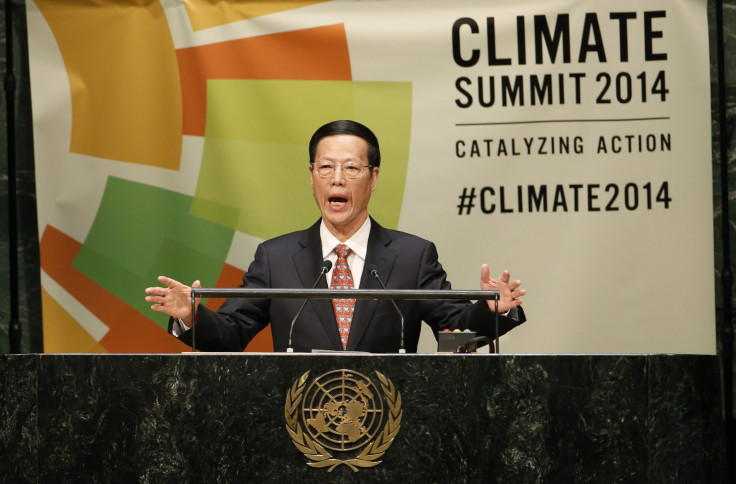Climate Summit: China Promises to Curb Carbon Emissions, India Insists on Growth First

China, which is on a grand growth trajectory, has, however, spoken for the first time about curbing the 'carbon intensity' of growth.
The Asian power house will aim to reduce its emissions of carbon per unit of GDP by 45 percent compared with levels in 2005, Vice-Premier Zhang Gaoli said at the recent UN climate summit in New York, adding that its emissions would peak very soon.
India, however, continued to be bullish on the issue of climate change, preferring to focus on poverty and the need to address economic growth, rather than talk of emission reductions.
While the country was "fully committed" to achieving its voluntary goal for reducing emission intensity of its GDP by 20-25% by 2020 over 2005 level, its per capita energy consumption was a fraction of that of the developed world, environment minister Prakash Javadekar said.
New Delhi's aim is to boost growth at low carbon intensity, the minister said at the climate gathering in New York, according to the Times of India.
Contributions from developed nations towards the green climate fund had to increase if the poor nations are to take up climate change mitigating actions, the minister said.
The developed world's historical responsibility of having contributed majorly to global warming has long been used by India and China for seeking increased commitments from the west in raising the living standards in developing nations.
The minister told the gathering that "poverty remains a major polluter" and poor nations need to grow economically to address it. Around 1.2 billion people still live in extreme poverty across many countries, he added.
India's per capita emissions are still low at 1.9 tonnes, but the country's total emissions are likely to overtake those of the EU by 2019. Per capita emissions are still largely quoted by nations when comparing living standards but as experts note, the term is often a misleading one.
In a country like India, where millions still lack access to electricity, to simply divide the total emissions by the population does not give the exact picture of development.
Summit declaration
Nations, indigenous groups and companies meanwhile endorsed a global timeline to halve deforestation by 2020 and completely by 2030 and in the process avoid between 4.5 billion and 8.8 billion tonnes of carbon emissions per year by 2030.
The declaration adopted at the end of the recent UN sponsored climate summit is non-binding.
Deforestation accounts for around 8% of the world's carbon emissions.
The new agreement, if adopted by all, could save more than 350 million hectares of forests and croplands and also reduce carbon emissions. It will contribute in a major way to limit global temperature rises to the crucial 2 degrees Celsius beyond which irreversible climate change effects will take place.
© Copyright IBTimes 2025. All rights reserved.





















